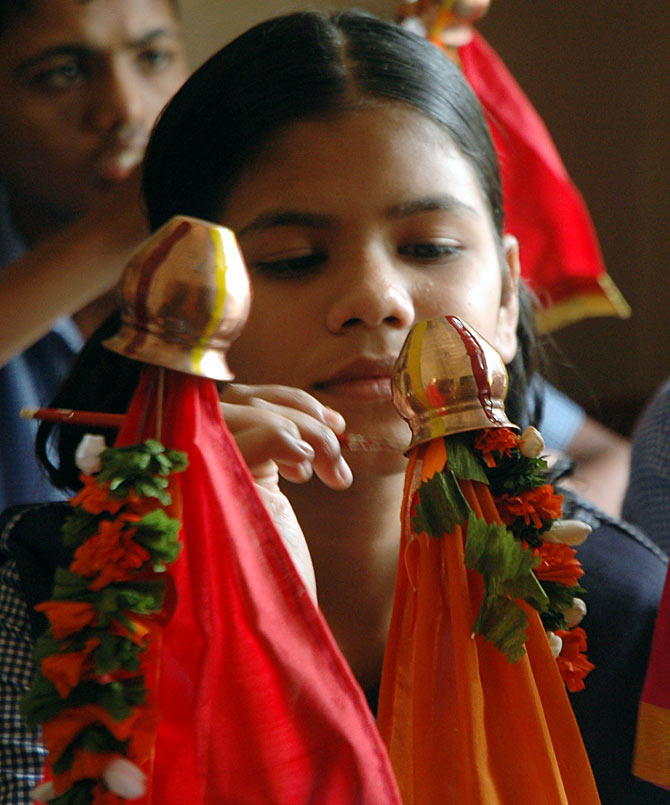
Gudi Padwa also known as Padwa is celebrated by people across the state of Maharashtra as the Marathi New Year.
In Karnataka and Andhra Pradesh, it is celebrated as Ugadi while Sindhis celebrate is as Cheti Chand. for a new dawn.
Traditionally, Maharashtrian women wear a kashta or a nauvari -- a nine-yard saree tucked at the back, while the men are dressed in a kurta pyjama and sport a saffron or red turban.
The traditional rangoli
The women of the house wake up earlier than the men and draw a rangoli in the frontyard.
The rangoli is a colourful pattern made from powdered rice, vermillion and turmeric.
In modern times, people also make use of flowers and candles to make the rangoli more attractive.
The rangoli is meant to ward off negative energies and bring in good luck.
Flower decoration
Diwali or Dusshera, any Indian festival is incomplete without the flowers.
Likewise, on Gudi Padwa too, colourful flowers are offered to Lord Brahma while the entrance of the house is adorned with bright coloured festoons and flowers.
Flowers signify purity and the fragrance is meant to spread positive energy.
The Gudi
On Gudi Padwa, a new kalash made of silver, copper or bronze covered in auspicious red, yellow or saffron cloth is hoisted upside down at the entrance of the house. This is called the Gudi.
The Gudi has to be positioned in such a way that is visible from far and doesn’t miss the eye.
It's a sign of prosperity and good things to come.
Some people also hoist a saffron flag to commemorate the victories of Chhatrapati Shivaji Maharaj.
In the evening, a procession is held where people unite and perform the lezim to entertain the audience.
The holy prasad
Unlike most Indian festivals where prasad comprises something sweet, Gudi Padwa is one of the few festivals where people are treated to a unique preparation made from neem and jaggery.
The bitter-sweet flavour is resemblant of the journey of life -- mixed with happiness and sorrows.
Rediff.com wishes all its readers a very happy and prosperous New Year. May this year be filled with reasons to celebrate!